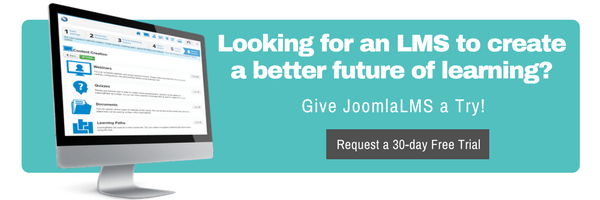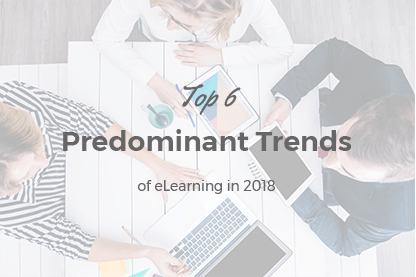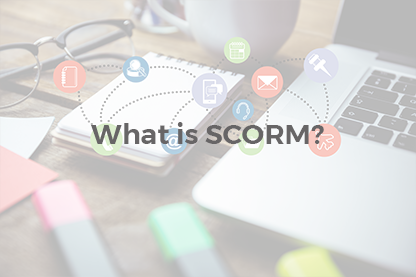Not a long time ago we shared with you 15 Podcast Episodes to Help you Launch a Successful Online Courses Business. One of the podcasts belonged to a business strategist, marketer, and entrepreneur – John Colley. His podcast “The Optimistic Entrepreneur” is oriented at online courses business owners and is a great place to learn from top online entrepreneurs, bloggers, speakers and course creators.
When I reached out and ask if John would be interested in being interviewed for the JoomLMS blog he didn’t have to think twice.
So, here we go…
Not a long time ago we shared with you 15 Podcast Episodes to Help you Launch a Successful Online Courses Business. One of the podcasts belonged to a business strategist, marketer, and entrepreneur – John Colley. His podcast “The Optimistic Entrepreneur” is oriented at online courses business owners and is a great place to learn from top online entrepreneurs, bloggers, speakers and course creators.
When I reached out and ask if John would be interested in being interviewed for the JoomLMS blog he didn’t have to think twice.
So, here we go…
An interview with John Colley in which he shares things to know to get started with eLearning podcasting!
Video Transcript
Ilona: Hello John, I am super excited to have you as an interviewee in the JoomLMS blog. Before we go there, how does it feel to be on the other side as an interviewee?
John: I love being interviewed actually, probably because I am so vain [laughs]. It is always interesting to be questioned because it actually makes you think. I am very glad to have this opportunity. And of course, I’ve got an opportunity to speak to your audience and, hopefully, I can add a little bit of value to them today because that is something I always try to do.
Ilona: Great, let’s start then.
Can we start by learning a little about you? You are a Former British Army Officer and International Investment Banker, how did you get into the field of online learning?
John: Fundamentally, through desperation [laughs].
When I came out of the university I joined the British Army and I was an army officer for about five years. I then left that and went into investment banking, which I did… well, I am still doing it. I’ve been in investment banking since 1998 (hence all the gray hair and the thing on top) [laughs].
And after the crash in 2008 I realized that, actually, the investment banking market (‘cause I was running my own boutique at that point) had become much more competitive. There were a lot of out of work investment bankers, and they were setting up boutiques. So, I had to find the way of differentiating myself. And one of the things I had was all this knowledge and experience but I didn’t have any way of delivering it to my audience. And actually, at that point, I didn’t really know who my audience was.
So, I taught myself all about online marketing and then discovered the power of creating online courses and then taught myself to do that. So, it was the need to be able to share knowledge and information and give my potential clients help and knowledge in advance of working with them. So, it became just a necessary part of my business really.
Ilona: What is the background story behind ‘The Optimistic Entrepreneur' Podcast? How did it get started?
John: The Optimistic Entrepreneur is an evolution of a series of things.
I started my first podcast (my online brand is a 6 min strategist because I tend to break things down into 6 points and explain them under 6 minutes so that you will get a very simple explanation) called “A Conversation with the Six Minute Strategist". It was very egocentric of me because it enabled me to go and talk to a lot of people who I wanted to talk to and gave me an excuse to interview them, which was great, but it didn’t really have an audience focus.
And then, when I really got into creating many online courses (I created over 30), I thought it would be very interesting to learn more about online courses by interviewing other course instructors. So, for a long time the podcast was called “The Online Learning Podcast”, and I went round, interviewing lots of other instructors about their courses, and how they made them, and what they were about, and then providing links and discounts to their courses, which was fine but, fundamentally, I wasn’t really helping my audience because the course range was so vast. That podcast I stopped doing in October last year.
I’ve been thinking very hard about how I can combine the eLearning, which I think is incredibly important part of any entrepreneur’s journey - to be continually learning about new things because you can never afford to stop, with a focus very much on my audience, which is entrepreneurs.
And therefore the title “Optimistic Entrepreneur”, it really allows me to focus in and tell my audience whom the podcast is for. And at the same time I can keep delivering them great content, great information and encouraging them as well to go down the eLearning route, but in a much more subtle way, because I am not ramming eLearning down their throats.
So, I interviewed the guy yesterday, the guy called Tom Hunt, very interesting guy, and he actually doesn’t even have a paid course. What he has is a couple of fantastic blog posts and at the moment 3 out of 4 videos, which all help you to learn how to drive more traffic to your website. You do need to spend the best part of an hour going through that content to learn it, and that is very much “eLearning”.
So, hopefully, in that instance, people will be drawn in by the stories that he is telling, will move across and follow up with the links. And there is no money involved. He is doing it for free. I am not taking anything out of it. They will find the links, find the content and learn what he has to share with them without them actually realizing they are being told to do some “eLearning”.
Ilona: What are the top three challenges in running an eLearning podcast?
John: The first one is getting enough great guests. And there is no prescription to this. I don’t go round looking on different sites and getting people to find them for me. But as I come across interesting people, I just say, “Look, I’d love to get you on my podcast”. If I say, “I want to go and have a cup of coffee with you, I will buy you a cup of coffee, I want to pick your brains for an hour”, people would say, “Oh, I am sorry, I am very busy”. But if you say, “I want to interview you for my podcast”, then, they love it! And so, getting guests on is not difficult once you find them and ask them. That is the first thing.
Secondly, it is actually consistency. And this is where I put my hand up and say that I am rubbish at this. “The Online Learning Podcast” had 138 episodes before it paused. And they were pretty consistent every week. And that does take a lot of commitment. And now, when I am back from my summer vacation, I’ve got 4 or 5 interviews in the bag. This one will be certainly another interview, which I’ll put on the podcast because I can use the audio from this as well as using the video. So, it is being consistent and getting an episode out every week because it is what your audience really wants.
Then the third thing, frankly, is… You know, it is great to do the interview and that is fantastic, but there are a couple of hours of post-production work, which is necessary in terms of getting all the different bits of the intro, the outro, the segues and all the staff put together. And then publishing it, getting it on the Libsyn, writing all the notes, maybe producing a lead magnet. There are a lot of places where I need to share when a new episode comes out.
So, this post-production admin, which again requires a commitment and a dedication, is just as important as the interview. And having spent the time with my guests and they giving their bare time to me, of course, it will be very remiss of me if I then didn’t do my best to make sure the production quality is the highest and the follow-through was done properly.
So these three things: quality guests, consistency of delivery and getting all of the post-production admin, you know, the boring stuff done, to the best possible standards.
Ilona: Speaking of entrepreneurship, you’ve interviewed many marketers, businessmen, what was your most memorable interview and why?
John: That’s a very good question to which, fundamentally, I don’t have an answer. I’ve been very lucky to interview quite a number of big names: I’ve interviewed John Lee Dumas, I’ve interviewed Chris Ducker, I’ve interviewed Chris Brogan, but I’ve also interviewed literally hundreds of what I would call “below the parable” people, people who are working hard in their businesses or making amazing courses, but who don’t have massively high profiles. And I am continuously surprised and delighted by the fact that almost, doesn’t matter who I’ve interviewed, I learned something new just through the interview process. So it is really invidious to pick up one out.
I’ll give you a very small example. There was a young lad, who approached me because he wanted to get access to one of my courses, and it turned out he was 15 years old. I give away about 80% of my courses anyway because I am a great believer in spreading education. I told him to jump on Skype to have a talk and see how I could help him. And it turned out, not only he was 15, he was also extremely bright, at that moment he was interning for one of the big software companies, he was already the CTO (Chief Technology Officer) of his own startup. I said, “Hang on, hang on! I need to interview you. You can teach me more than I can teach you.”
So, from the most surprising, the most engaging and unexpected areas you find and learn so much from people. So, I value all my guests. I am really delighted because it is a great way of getting to know somebody. Suffice it to say that it is one of the most fun things I do in my work, it is just like a private conversation with somebody for an hour and it is just such a good one.
Ilona: What’s the biggest lesson you’ve learned over these years of the podcast existence and being a business strategist?
John: I think that the most important thing is to remember that everything you are doing, you are doing because you should be delivering content that your customers want and need and you are doing it for them. So, there is no point in me sitting and talking about myself endlessly. I will be very interested in that, and you will certainly fall asleep. The most important thing is remembering that what you are creating is for your customers.
But what I love about podcasting in particular, is it seems to be a medium, which is completely unique. People basically allow you to get inside of their heads. They put their earphones in, and for 20 minutes, a half an hour, an hour you are literally inside their heads talking to them. And that is an incredibly sustained period of time. Yes, they might be doing other things, running and walking or driving, or whatever it is, but they are giving you headspace literally. And therefore you’re building a fantastic relationship with those people who listen to your podcast.
Now, my podcast is just about to take over 900 000 downloads. So, there are 900 000 opportunities to talk to people and build relationships. Obviously, I am sure, many people have listened to more than one episode, so there are no 900 000 people, but, nevertheless, it is an astonishing way of building a very strong relationship with people and I really value that, and I am really excited because it becomes possible. That is why I keep coming back to podcasting and cannot keep away from it.
Ilona: What about marketing? How do you promote your eLearning podcast to reach a new audience because the numbers you’ve provided are very impressive?
John: The marketing is partly automatic and partly is sort of manual. The automatic is because I’ve got Libsyn set up, which is where I host the podcast. And when I produce an episode, it automatically goes to a number of different podcast sites, it is automatically gets published on LinkedIn, on Twitter, on Facebook. That happens when I publish an episode.
But there is also the follow-up. I then go to my Facebook groups, tweet about it, and tell people about it, maybe I would create something sticky on Instagram.
But the other great thing about doing an interview style podcast, as opposed to a solo podcast, is that your guests produce a fantastic channel for you automatically to promote your podcast to a new audience. It doesn’t matter whether it is a huge audience or a small audience. I always let guests know when the podcast gets published; I always send them the direct link, the embed code so they can share it on their website. And that means that every episode potentially reaches a new audience because my guests will share them with their communities.
The best way to grow is to get really interesting guests. Don’t necessarily just trying to get big names, but get interesting people. You can get interesting people who have got something to promote, for example. If you hear someone having a book coming out and it is relevant to your audience, then a couple of months before the book is due to be published, get hold of them and say, “I would love to interview you for the podcast! We can do the interview now while things are quiet and I will put it out around the time the book is going out, and you then can use it for your promotion”. They will promote your podcast because they will be promoting their book. So, getting your guests to do some of a hard work is probably a really good tip.
Ilona: Based on your experience, what’s one good tip you can provide for people interested in starting their own eLearning podcast?
John: I’m going to give you a link in a minute. But the best piece of advice is not to be afraid of doing it!
When I started off, I was really nervous about speaking to the microphone. I thought it’s going to be very difficult. I set my Teddy Bear on my desk in front of me so I could talk to my Teddy Bear. Literally, I am 56 and, I am talking to a Teddy Bear [laughs]. I needed to have a focus because I wasn’t used to talking to the microphone. So don’t be afraid of it, it is actually not that difficult.
Now, many of your audience, I am sure, have heard of Pat Flynn. If you google Pat Flynn ‘How to podcast’, he has got a page on his blog, which is frankly amazing in terms of teaching you step by step how to set up a podcast. He has also 6 or 7 videos as well. I just looked at the page before we came on. The videos are about the equipment he uses, how he set up the software… If you have never podcast before, just go and spend some time on Pat Flynn’s Blog. It all free, it is a fantastic service he provides there.
I’ve looked at a number of other courses and things on podcasting. I started off the podcast by mixing in Garage Band on my Mac, now I use Audacity since it allows me to do more sophisticated things with the sound. But, frankly, you can just start off with a reasonable USB microphone and with a simple web cam. Everything on a Mac enables you to do it. And Libsyn hosting is around 5 dollars a month; it is not that expensive to get the hosting.
If you are going to have a podcast definitely get it hosted by somebody other than the people hosting your website. Libsyn, I think, is great. But go and learn how to do it with Pat Flynn. Within a couple of hours you will be ready to record your episode.
So, the key point is not to be afraid. Go and do it! Once you’ve started, commit to it and keep going!
Ilona: Great, thank you, John, I have around 100 more questions I would like to hear your thoughts on but I don’t want to take more of your precious time. I am really grateful for having this opportunity to do the interview. Thanks a lot.
John: It was brilliant to talk to you, Ilona. Thank you very much for inviting me to your blog.
Listen to the podcast episode:
To learn more about John Colley, to listen to his podcast and enroll in his courses, please follow the links below:
Website: http://jbdcolley.com
Udemy: www.udemy.com/user/johncolley
Itunes Podcast feed: https://itunes.apple.com/us/podcast/optimistic-entrepreneur-podcast-incorporating-online/id731469236?mt=2










